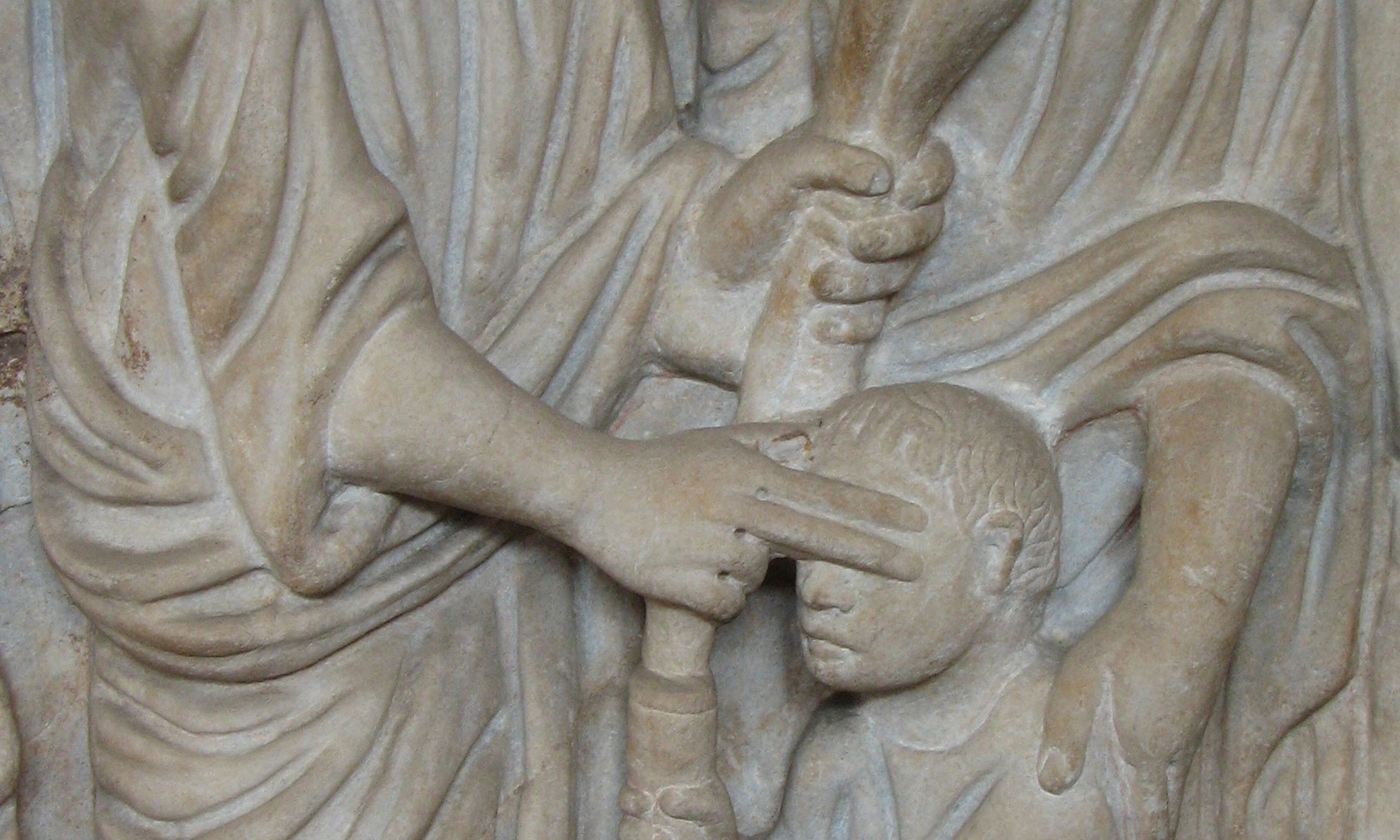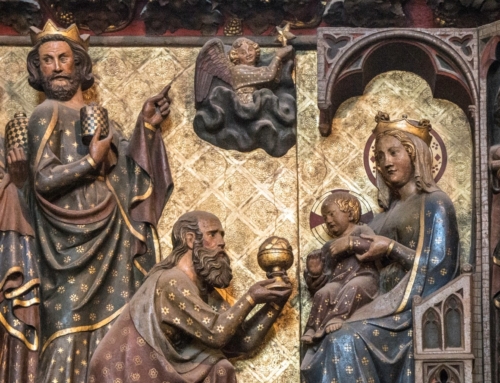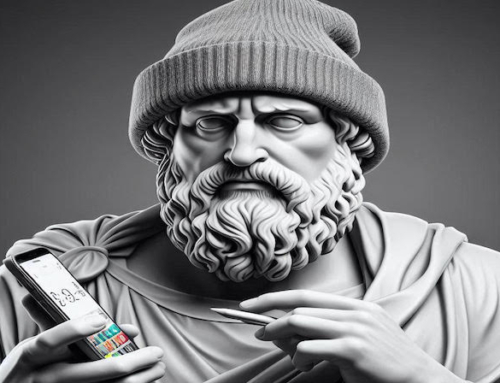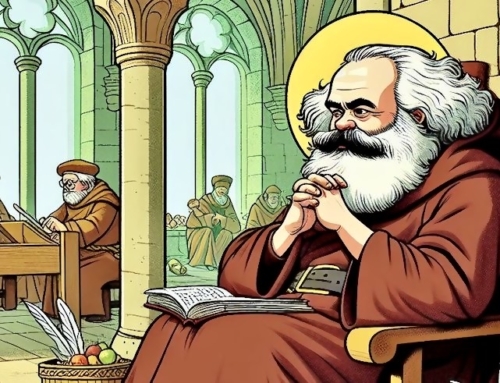Lectio Divina: A Meditation on the Gospel for Sunday
With the Gospel reading from the upcoming Sunday Mass as its principal source-text, each Lectio Divina (“Sacred Reading”) essay offers a prayerful meditation of the Sacred Scriptures—one which draws from the wealth of biblical literature, as well as the prayer life of the individual author.
Saint Augustine begins his homily for this Sunday’s “long lesson of the man born blind” with a word of disclaimer: “the day would be insufficient” to treat the whole ninth chapter of John. His abbreviated commentary still runs some six times longer than an acceptable Dominicana blogpost. All the same, in lectio divina there is no real substitute for the actual lectio—reading Scripture itself. Before continuing, you might take a moment to read Sunday’s gospel (John 9:1-41) slowly and prayerfully.
As Jesus passed by he saw a man blind from birth. His disciples asked him, “Rabbi, who sinned, this man or his parents, that he was born blind?”
It seems to have been the universal cultural wisdom of the ancient world that physical suffering was understood as punishment for sin (Keener, The Gospel of John: A Commentary, vol. 1, 777-778). Saint Thomas Aquinas needs only to cite a single verse from Eliphaz to call to his students’ attention the whole drama of the book of Job (Job 4:7). The Pharisees themselves will weaponize the pauper’s blindness in the ultimate ad hominem attack: “You were born totally in sin, and are you trying to teach us?” But Jesus, passing by, knows the truth: “It is so that the works of God might be made visible through him.” God in his wisdom permitted the evil of this man’s blindness, so that the works of God may enlighten his, and our, blind hearts.
Although neither he nor his parents sinned to cause this particular suffering, there’s a categorically different blindness that Jesus, the light of the world, comes to cure. “That blind man is the human race,” Augustine observes, for without Christ we were “by nature children of wrath” (Eph 2:3). Aquinas offers St. Paul’s and St. John’s testimony that none of us are free from sin, either original or personal (Rom 3:23, 1 John 1:8).
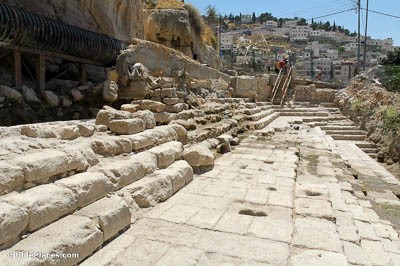
Photo courtesy of Bibleplaces.com.
He smeared the clay on his eyes, and said to him, “Go wash in the Pool of Siloam”—which means Sent—. So he went and washed, and came back able to see. Archeology can now tell us quite a bit about the first-century Pool of Siloam, which was only just rediscovered in 2004. John, however, takes the time to clarify that the name Siloam (shiloakh), from the Hebrew verb sh-l-kh, signifies “Sent” (Martin and Wright, The Gospel of John, 173n5). From this detail Augustine derives the rest of his homily, for “God sent his only Son into the world, so that we might live through him.” To wash in the One Sent is to be baptized into Christ; to be anointed (ἐπέχρισεν) with clay is to be made a catechumen, a candidate for baptism (Martin and Wright, 173). This Sunday, the Church continues an ancient tradition of preparing her catechumens through the rite of the second scrutiny. “All of us who have been baptized into Christ Jesus were baptized into his death,” and from that submersion into his death we are healed and enlightened, so that “we too might walk in newness of life” (Rom 6:3-4).
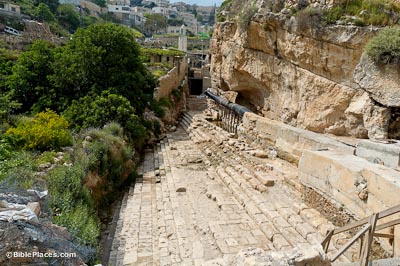
A patient reader might object that, after all this, we’re only 14.3% of the way through the reading! The man came back able to see, so what more needs to be said?
The rest of the Gospel follows this man as he slowly begins to testify to Christ. His neighbors and fellow beggars marvel at his cure, and he responds in an objective, but almost disinterested, way about “the man called Jesus.” They bring him to the Pharisees, and he repeats the story, eventually asserting “he is a prophet”. “The man’s own soul was like that of one only as yet anointed, but not yet seeing,” Augustine suggests, “He preaches, and knows not the Being whom he preaches.” The Lord does not desire ignorant preachers, however, and the catechumen of today will need to answer for himself at the Easter Vigil: He is of age; question him. But confessing Jesus has consequences—Then they threw him out.
So Jesus comes to find the beggar, to find one now alone, rejected, and excommunicate. Jesus too has a question, one that offers a grace infinitely greater than any physical healing. Augustine: “Now he washes the face of his heart.” Do you believe in the Son of Man?
This Easter, as catechumens prepare to welcome the light of the world, may we too learn the one solace and eternal joy of this beggar: He said, “I do believe, Lord,” and he worshiped him.
✠
Photo by Fr. Lawrence Lew, O.P. (used with permission)

